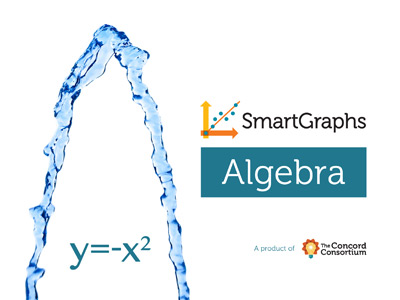Designing Tools for Developing Minds: The Role of Child Development in Educational Technology
To examine the value of the electronic teacher guide (eTG) as a curriculum planning and teaching tool,
it was important to study it in the contexts of teachers’ actual planning, teaching, and reflecting.
This paper described two descriptive case studies.
The goal of the Electronic Teacher Guide project (NSF # 0918702) was to redesign the print teacher guide for the genetics unit of Foundation Science: Biology (NSF #0439443) as an exemplar of a cybertool that would support the implementation of the curriculum and enhance its educative impact. The completion of this goal required collaborative interactions among curriculum developers, technology designers, software developers, researchers and evaluators. The five year collaboration was characterized by major challenges relating to communication, geographical distance, and culture.
The goal of the Electronic Teacher Guide project was to redesign the print teacher guide for the genetics unit of Foundation Science: Biology as an exemplar of a cybertool that would support the implementation of the curriculum and enhance its educative impact. The completion of this goal required collaborative interactions among curriculum developers, technology designers, software developers, researchers and evaluators.
Reason Racer is an online, rate-based, multiplayer game that applies specific game features in
order to engage middle school students in introductory knowledge of and thinking related to
scientific argumentation. Game features include rapid and competitive play, timed performance,
immediate feedback, and high rates of response across many game-play sessions and science
scenarios. The areas of argumentation addressed in the game include understanding a claim,
judging evidence about a claim based on type (fact, opinion) and quality, determining the
Ault, M., (2014). How games can engage students and improve learning. eSchool News: Daily Tech News & Innovation. Retrieved from www.eschoolnews.com/2014/06/06/games-engage-students-241/
Understanding how games create a sense of flow and engagement can help teachers make better choices about their instructional use of games.
The Concord Consortium has developed 19  activities for teaching and learning algebra that are available online or as an app for iPad or Android tablet computers. These activities—which cover a variety of algebra topics, from linear equations to transformations of functions—help students develop skills creating and using algebraic functions and graphs to solve problems.
activities for teaching and learning algebra that are available online or as an app for iPad or Android tablet computers. These activities—which cover a variety of algebra topics, from linear equations to transformations of functions—help students develop skills creating and using algebraic functions and graphs to solve problems.
The Concord Consortium has developed 19 activities for teaching and learning algebra that are available online or as an app for iPad or Android tablet computers. These activities—which cover a variety of algebra topics, from linear equations to transformations of functions—help students develop skills creating and using algebraic functions and graphs to solve problems. Hints and scaffolds support learners who need help.
Leaders of three DR K-12 projects identify successful instructional strategies for using technology-enhanced curriculum materials, games, and models to achieve the NGSS practices.
The media, the public, and, indeed, many teachers have significantly criticized the introduction of the Common Core, citing concerns such as that it overcomplicates simple topics, diminishes innovation, and ignores equity issues. Following the recent introduction of the Next Generation Science Standards (NGSS), we need compelling examples and powerful research to prevent premature criticism and ensure successful implementation.
Participants explore assessments developed in the SimScientists Physical Science Links project, and discuss whether the developers successfully integrated the three dimensions of the NGSS.
The SimScientists Physical Science Links project aims to develop a multi-level system of assessments aligned to the Next Generation Science Standards (NGSS) at the middle school level. The first suite developed focuses on energy. The first iteration of these assessments have been developed and tried out in the classroom of a teacher co-developer with five classes of students.
Join this lively, interactive discussion examining the opportunities for coordinating work in games and simulations. Discuss and plan embedding, data capture/analytics, customization, and more!
The advent of today’s widespread educational technology presents some new and exciting opportunities. Models and simulations can be easily embedded in other content. Research is exploring the use of simulations and games for novel assessment purposes. Technologies—especially HTML5 technologies—are making formerly unprecedented learning possible. This moment is unique, and as educational designers and researchers, we should be making the most of it and ensure that our work is aligned for maximum synergy.
Participants and the presenters will discuss their experiences—including releasing free and paid apps—and provide suggestions to others for successfully reaching many users.
Over a period of five years the SmartGraphs project developed HTML5 software for teaching and learning STEM subjects that make use of line graphs and scatter plots. SmartGraphs activities help students understand the “story” represented by a graph. The project created dozens of activities for algebra, physical science, and other STEM subjects, as well as an authoring system allowing non-computer-programmers to create and disseminate free online activities.